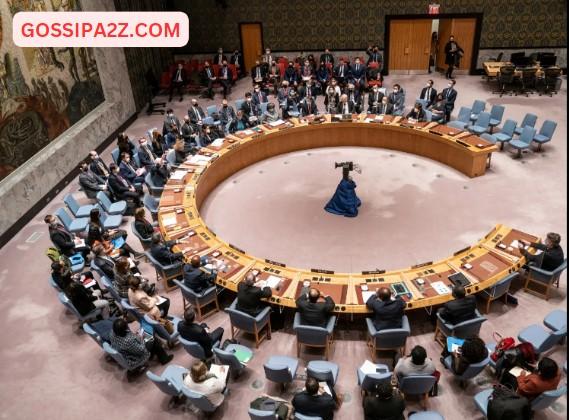UN Security Council to vote on Kenya’s Haiti police deployment plan
When the United Nations Security Council (UNSC) convenes for a vote on Monday, Kenya will learn whether it will proceed with its plan to deploy police to Haiti for a mission.
The Council is scheduled to vote on a US resolution to authorize the deployment of an international force to the Caribbean country.
The resolution drafted by the United States recognizes Kenya’s offer to lead a multinational force to combat marauding gangs that have continued to destabilize the country since 2021, to restore security.
It is expressly stated that this would be a non-UN force supported by voluntary contributions.
The United States has already pledged $100 million (Sh14.7 billion) to assist Kenya in its mission.
If adopted, Kenya will deploy at least 1,000 police officers selected from various national police service formations.
The resolution would grant the force a one-year mandate, with a subsequent review after nine months.
The United Nations approved a stabilization mission in June 2004, but nations have been reluctant to deploy their forces.
The resolution by the administration of President Joe Biden condemns the increasing criminal activity and violations of human rights that threaten the peace, stability, and security of Haiti and the region.
In Haiti, there has been an increase in sexual and gender-based violence, kidnappings, human trafficking, murders, extrajudicial executions, and arms smuggling.
The UNSC consists of five permanent members – China, the United States, France, the United Kingdom, and Russia – and ten non-permanent members elected for a two-year term.
These include Albania and Brazil UAE, Ecuador, Gabon, Ghana, Japan, Malta, Mozambique, Switzerland, and Mozambique.
Article 27 of the United Nations Charter stipulates that each Security Council member has one vote.
ALSO READ:
- Kipyegon Suffers First Defeat in 2023 in Latvia
- Motorists Expose Petrol Stations Selling 1 ltr At Ksh300
- Cardinal Otunga Girls Suspends Candidates Over Lesbianism, Phone Possession Allegations
On all other matters, the Security Council decides by an affirmative vote of nine members, including the ballots of the permanent members; provided, however, that parties to a dispute abstain from voting in decisions under Chapter VI and Article 52, paragraph 3.
A state that is a member of the United Nations but is not a member of the Security Council may partake in its deliberations without a vote when the council meets to discuss issues that affect it.
Biden, speaking at the 78th United Nations General Assembly in New York, where Ruto was present, emphasized that the international organization must continue to preserve peace, prevent conflict, and alleviate human suffering worldwide.
“We applaud nations that take the initiative to forge new paths and pursue innovative solutions to difficult problems. For example in Haiti, the Caribbean communities facilitated a dialogue among Haitian society,” Biden said.
“I thank Kenya’s President William Ruto for his willingness to serve as the leading nation of a UN-backed security support system.”
In addition, he urged the United Nations Security Council to authorize the mission to the Caribbean nation, stating that “the Haitian people cannot wait any longer.”
A Kenyan security team conducted an assessment mission in Haiti and then briefed the president on its findings last month.
If a decision is made to send police to combat the gang violence that has ravaged the Caribbean nation, a succession of events will take place.
These include identifying the team to be recruited, training them, providing them with equipment, financing them, and sending them to Haiti.
UN Security Council to vote on Kenya’s Haiti police deployment plan
